Uri Dadush of the Carnegie Endowment for International Peace provides apreview of the G-20 meeting in Pittsburgh this week. Dadush says worldleaders musttread carefully as they plan for the withdrawal of government support,insist onreforms needed to prevent a future crisis, and remove the uncertaintysurrounding the role of the G-20 as a forum for global economicgovernance
Economics & Business Archive
Free Newsletter
As somebody who spends his workdays evaluating investment opportunities in emerging/frontier economies, I receive a lot of business pitches involving new technologies. The time I spend listening to these accounts of how things can ultimately work out for the better balances my work in the national security realm contemplating how everything must “inevitably” collapse into conflict. I find the perspective it offers invaluable, because it reveals how often what we call “realism” tends to be hopelessly trapped in centuries past. Right now the bulk of the pitches I receive focus on alternative energy. No surprise there, but not for the […]
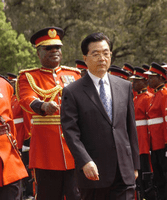
When I was in Ecuador two years ago, a businessman named Ivan excoriated me about the limits Washington placed on business that local fishing firms could do with the U.S. The conversation went on for a while, but when it ended, he promptly introduced me to his teenage daughter and pleaded with me to speak to her so that she could practice her English. In fact, she spoke eloquently and fluently, but the irony was no less striking: The gringos to the north offered little opportunity to Latin America, but the best chance for Ivan’s daughter to succeed — leaving […]
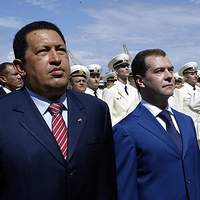
Venezuelan President Hugo Chavez’s latest visit to Moscow resulted in a package of arms and energy deals that highlight the mutually beneficial nature of the current Russian-Venezuelan relationship. Facing declining purchases from traditional arms clients, such as India and especially China, Russia has sought to compensate by expanding arms sales to new markets, including in Latin America. For the most part, however, Russian sellers have not been able to achieve major successes, despite Latin American countries doubling the volume of weapons they purchased between the periods of 1999-2003 and 2004-2008. Although the share of Russian arms exports going to Latin […]

Last week, the United Nations Conference on Trade and Development (UNCTAD) issued a report calling for sweeping changes in the international financial and monetary order. Arguing for a reduced role for the dollar, the report advocated for a global reserve bank with the power to issue its own currency, to monitor its members’ national exchange rates, and to prop up or push down their currencies. In other words, UNCTAD is making the case for a global central bank. The U.N. is not alone in calling for such a move. Since the eruption of the global financial crisis last fall and […]

In the asymmetric wars that have characterized the post-9/11 conflict horizon, our adversaries have been unable to challenge U.S. control of the skies. Now used primarily for close air support and the hauling of gear and supplies for ground troops, the U.S. Air Force has been left to wonder whether its pilots will ever again be called upon to perform their most prestigious of missions — air-to-air combat. As a result, the Air Force has been actively looking for new missions. It has bought hundreds of unmanned aerial vehicles (UAVs), machines that have proven invaluable to ground forces fighting in […]
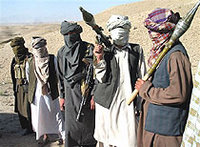
The Taliban is running out of money. That was the conclusion some observers reached when the U.N. Office on Drugs and Crime reported last week that Afghanistan’s poppy crop is down nearly a quarter compared to last year. But other experts caution against declaring financial victory. If anything, the behind-the-scenes campaigns to dry up Taliban funding are only now catching up to the extremist group’s sophisticated financial operations. Poppies, the basic ingredient in opium, represent Afghanistan’s biggest export — albeit an illegal one. They “fund the activities of criminals, insurgents and terrorists in Afghanistan and elsewhere,” according to the UNODC […]

The four nations involved in the Eurofighter Typhoon military aircraft consortium signed a long-awaited contract in late July to buy more of the controversial fighter jets. The breakthrough represents a much-needed financial boost for a program central to European defense cooperation, one that, like other European defense projects, has been dogged by technical problems and spiraling costs. The $13 billion deal between Britain, Germany, Italy and Spain for another 112 Eurofighters followed many months of debate over the cost of keeping production lines open amid growing concerns over budgets and defense priorities. Under the original Eurofighter umbrella contract signed in […]
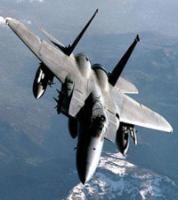
A study by the Congressional Research Service (CRS) found that U.S. arms sales surged last year, despite the worst global economic downturn in decades. (UPDATE: WPR subscribers can download the CRS report here.) In 2008, U.S. arms dealers signed new weapons contracts worth approximately $37.8 billion, a considerable increase from previous years. The surge was remarkable given that the total volume of new arms orders in 2008, $55.2 billion, was billions of dollars below the comparable figures for 2007 and 2006. The United States also fortified its position as the leading arms-exporting country. Last year, the volume of global defense […]

In what some experts are calling the third great wave of outsourcing — after manufacturing and services — cash-rich Arab and Asian governments are buying up arable farmland (read: water rights) all over the developing world. Naturally, the worst-case artists in my field of national security see only one possible outcome: a long, steady decline into a chaotic, Mad Max-like dystopia, characterized by that favorite of the alarmist set — resource wars. Get used to such predictions, as today’s still-stunning production inefficiencies are mechanically projected deep into the future, despite all indications of a biological revolution looming just over the […]
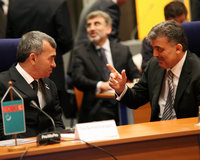
Less than a month after making progress on the Nabucco pipeline deal, which has now secured half of the gas needed to fill it, Turkey signed another natural gas agreement in early August that will allow access into Turkish territorial waters to the South Stream pipeline. South Stream, a Russian-Italian venture, is designed to bring Russian gas to Bulgaria while bypassing troublesome transit countries on the route between the Russian Federation and the European Union. A few days later, Turkey also held discussions with the emir of Qatar, Hamad bin Khalifa Al-Thani, on pipeline and liquefied natural gas (LNG) projects, […]

The International Atomic Energy Agency (IAEA) recently completed its most comprehensive assessment in months of Iran’s nuclear program and Tehran’s degree of cooperation with the agency and U.N. Security Council resolutions. Although the Aug. 28 report (.pdf) notes some new developments, its basic message is that Iran has not appreciably changed its main nuclear policies despite years of negotiations, U.N. sanctions, and its recent presidential elections. As a result, as in the past, both advocates and opponents of harsher sanctions on Tehran can cite some of the agency’s findings to support their positions. The report, which was promptly leaked to […]

In general, practitioners of international politics, and those charged with developing and executing governments’ foreign policies, have certain expectations regarding the behavior of the states comprising the international system. Indeed, these expectations reflect both rules commonly observed by state governments — if all too often in the breach — as well as a common understanding of the prerogatives that obtain to governments, as opposed to individuals and others not disposed of governmental authority. But do these expectations still hold and, if so, are they realistic today? Is modern information technology, and the global information infrastructure it enables, changing what we […]
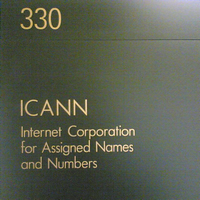
The Internet made a major contribution to global society by disrupting the regulation of media content by nation-states. It took the libertarian principle of “absence of prior restraint” and globalized it: No one had to ask for permission, or be licensed, to make their ideas and publications globally accessible. This open access, sometimes praised as “network neutrality” or the “end to end principle,” took states by surprise. The explosion of ideas, services and expression associated with the Internet’s growth in the mid-1990s happened because states weren’t prepared for it and because states weren’t in charge. Yet even if we accept […]
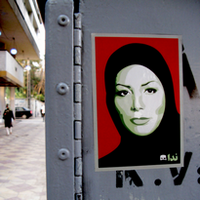
On June 20, 2009, as she watched demonstrators at an Iranian reformist protest gather on Tehran’s Kargar Avenue, Neda Agha-Soltan, 27, was suddenly shot in the chest and killed, ostensibly by a nearby Basij militiaman. Had this tragic incident taken place just a few years earlier, it might have been lost to history. As it happened, however, two separate amateur videos of Neda’s shooting and subsequent death were quickly posted online, where they spread virally around the Internet. If bearded ayatollahs were the iconic image of Iran’s 1979 revolution, the tragic killing of this young Iranian woman has become the […]
